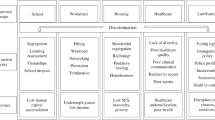Abstract
In recent years, communitarianism has turned bioethics away from an overwhelming emphasis on liberal individualism. Growing emphasis on the common good has created no few dilemmas for medical practitioners used to weighing the interests of their patients above all else. Three cases exemplify the conflict between community and individual interests. The first is the Israel Patient Rights Act (IPRA), a first of its kind statute that allows hospital ethics committees to impose lifesaving treatment on competent patients who refuse medical care. The second case investigates the medical treatment of wounded soldiers and suggests that community based obligations may, in some circumstances, allow physicians to give priority to treating compatriots over non-compatriots. The last case discusses force feeding political detainees. While many physicians are resolved to preserve a hunger striker’s right to refuse food, many state governments are equally resolved to feed them. Hunger striking sets the stage for a classic battle between respect for autonomy and concerns about the public welfare that communitarian principles can help resolve.
Similar content being viewed by others
Notes
Etzioni, A. 2011. “On a Communitarian Approach to Bioethics.” Theoretical Medicine and Bioethics 32(5): 363–374, at page 370.
Etzioni A. 2011. “Authoritarian versus Responsive Communitarian Bioethics.” Journal of Medical Ethics 37:17–23, at page 22.
Callahan, D. 2003. “Individual Good and Common Good: A Communitarian Approach to Bioethics.” Perspectives in Biology and Medicine, 46 (4): 496–507; Chadwick, R. 2011. “The Communitarian Turn: Myth or Reality?” Cambridge Quarterly of Healthcare Ethics 20: 546–553.
English, V. 2007. “Head to Head: Is Presumed Consent the Answer To Organ Shortages? Yes.” British Medical Journal 334 (7603): 1088.
Israel Patient Rights Act. 1996. (§15.2) http://www.abiliko.co.il/index2.php?id=1520&lang=HEB. (Hebrew).
Gross, M. L. 1999. “After Feticide: Coping With Late-Term Abortion in Israel, Western Europe, and the United States.” Cambridge Quarterly of Healthcare Ethics 8: 449–462.
Horowitz, D. and Lissak, M. 1989. Trouble in Utopia: The Overburdened Polity of Israel. Albany, NY: SUNY Press, 111.
ILA (Israel Land Authority). n.d. Glossary. http://www.mmi.gov.il/static/milon.asp (Hebrew).
Etzioni, A. 1995. “On Restoring the Moral Voice.” Pp. 271–276 in Rights and the Common Good: The Communitarian Perspective edited by A. Etzioni. New York: St. Martins Press, at page 273.
Geneva Convention (I) for the Amelioration of the Condition of the Wounded and Sick in Armed Forces in the Field, 12 August 1949, Article 12. Geneva.
Geneva Convention (I) for the Amelioration of the Condition of the Wounded and Sick in Armed Forces in the Field. Commentary. Article 2, § 2A, Geneva.
Simmons, A.J. 1996. “Associative Political Obligations.” Ethics 106(2): 247–73.
Held, V. 2006. The Ethics of Care. Oxford: Oxford University Press, 95.
Mason, A. 1997. “Special Obligations to Compatriots.” Ethics, 107(3): 427–47.
Kirke, Charles. 2010. “Military Cohesion, Culture and Social Psychology.” Defense and Security Analysis 26(2): 143–59; Siebold, G.L. 2007. “The Essence of Military Group Cohesion.” Armed Forces & Society 33: 286–95.
Siebold, G.L. 1999. “The Evolution of The Measurement of Cohesion.” Military Psychology 11: 5–26, at page 15. Also, Siebold, G.L. 2006. “Military Group Cohesion.” Pp. 185–201 in Military Life: The Psychology of Serving in Peace and Combat: vol. 1, Military Performance, edited by T.W. Britt, C. A. Castro and A. B. Adler. Westport, CT: Praeger.
Etzioni, A. 2002. Are Particularistic Obligations Justified? A Communitarian Examination. The Review of Politics 64: 573–598.
Held, Virginia. 2006. The Ethics of Care. Oxford: Oxford University Press:71.
Dakar, D. 2009. “How Israeli Medics Treat the Wounded.” Unpublished seminar paper
English, R. 2003. Armed struggle: The history of the IRA. Oxford: Oxford University Press, 263–274; 280–83
Even, D. 2013. “Israeli Doctors To Give Washington Tips on Dealing With Hunger Strikers Invitation Comes As U.S. Administration Under Fire Following The Force-Feeding of Guantanamo Bay Detention Camp Hunger Strikers.” Haaretz, Jul. 8, 2013, http://www.haaretz.com/news/national/.premium-1.534413; Khoury, J. 2013. “Analysis: For Palestinian Prisoners in Israel, Hunger Strikes have become a Winning Strategy.” Haaretz, Apr. 24, 2013, http://www.haaretz.com/news/diplomacy-defense/for-palestinian-prisoners-in-israel-hunger-strikes-have-become-a-winning-strategy-1.517263.
Israel Ministry of Justice. 2013. Proposed Government Change to Prison Regulations §1 (b), (d). Also, Efrati. I. 2014. “Israel’s Plan to Force-Feed Hunger-Striking Prisoners up for Public Critique; Israeli Medical Association Says Forcing Hunger-Strikers to Eat Is Tantamount to Torture.” Haaretz, Mar. 3, 2014.
Plata v Brown, United States District Court, Northern District of California, C01-1351 THE, 19-Aug-13.
Beauchamp T. L. and Childress, J. F. 2001. Principles of Biomedical Ethics, 5th Edition. Oxford: Oxford University Press, 259.
Author information
Authors and Affiliations
Corresponding author
Rights and permissions
About this article
Cite this article
Gross, M.L. Communitarian Bioethics: Three Case Studies. Soc 51, 354–361 (2014). https://doi.org/10.1007/s12115-014-9792-z
Published:
Issue Date:
DOI: https://doi.org/10.1007/s12115-014-9792-z




